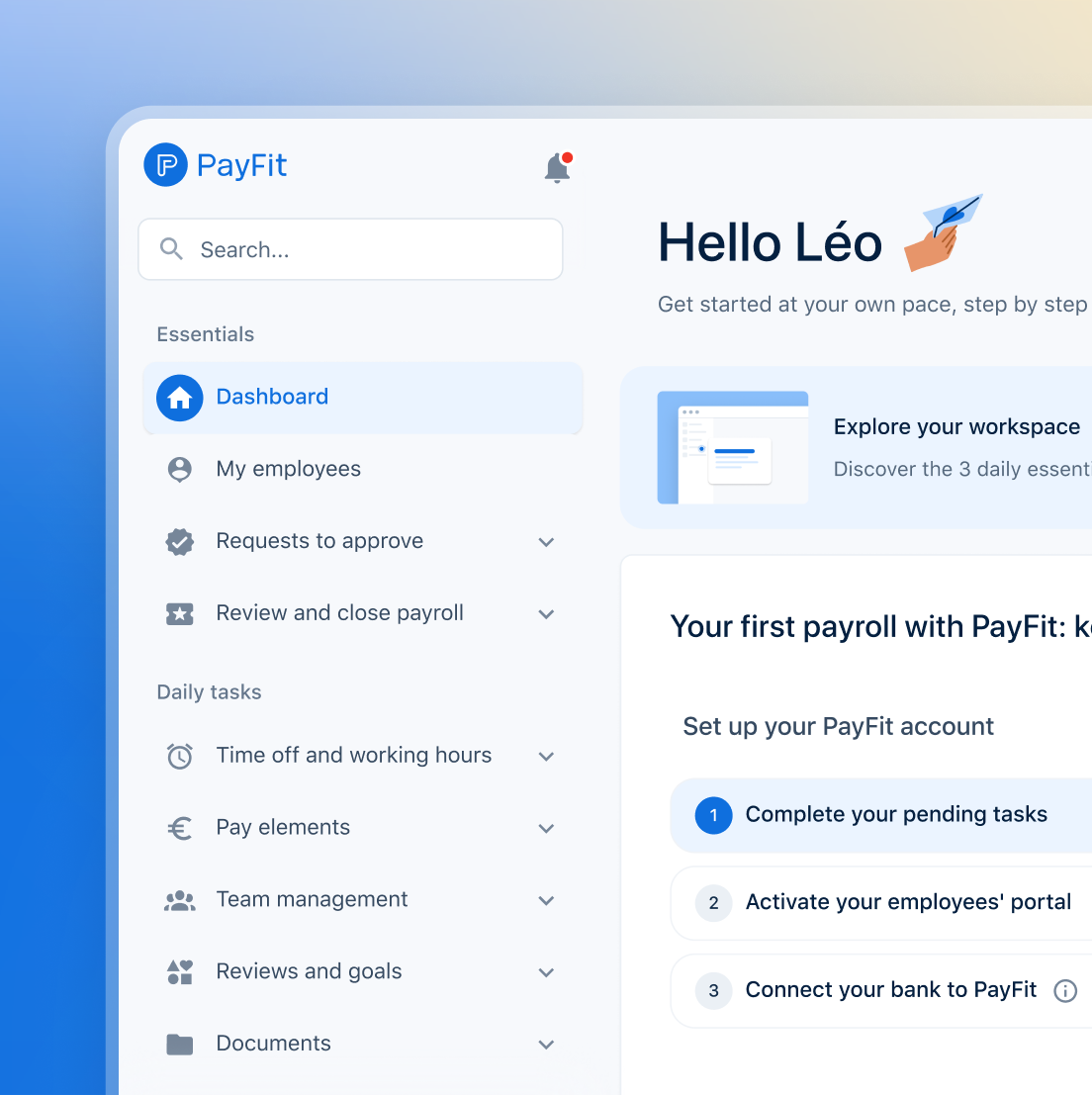✨ Health insurance, now in PayFit - learn more
💷 All the rates & thresholds you need to know for 25/26...right here
✨ The Payroll Journey: Start, Scale & Succeed Globally - learn more
✨ Health insurance, now in PayFit - learn more
💷 All the rates & thresholds you need to know for 25/26...right here
✨ The Payroll Journey: Start, Scale & Succeed Globally - learn more

A PAYE Settlement Agreement, otherwise referred to as a PSA, is a process that allows you, as a UK employer, to make one annual payment to cover tax and National Insurance Contributions (NICs) on minor, irregular or impracticable expenses or benefits on behalf of your employees.
In this post, we’ll go over what a PAYE Settlement Agreement is and what it should cover. We’ll also provide a PSA letter template you can use if you’re submitting it by post.
Read on!
Business taxpayers can now apply for a PSA online on the gov.uk website. HMRC’s new online application system lets you describe the expenses and benefits you want covered. You can still mail your form* in 2025 and 2026, though online applications are encouraged as the faster and preferred method.
Once you’ve submitted online, the authority will check the contents and send you a notification if there are any issues. If your request is authorised, you’ll get a confirmation email or letter.
*If you’ve posted your form, then you’ll be sent back two copies of the P626 form, which you’ll have to sign and return. HMRC will then authorise the request and return a form, which will then act as the PSA.
For 2019-20, the revenue agency overhauled the process to allow PSAs to be automatically renewed year on year in what is known as an “enduring agreement”. Up until then, you had to submit your application on a yearly basis, before the beginning of the accounting year.
If you have an enduring PAYE Settlement Agreement in place, then you only need to resubmit if you wish to amend any of the items listed in the PSA.
You can also cancel your PSA at any time and online, and will be sent an email or letter as confirmation. If you’ve cancelled by post, you might get a P626 with a cancellation date, plus a confirmation letter.
There are three main types of expense or benefit you should include in a PAYE Settlement Agreement: those that are minor, irregular or impractical. So, what do each of these mean? Let’s look at a few examples:
Minor: These are items such as incentive awards, long service rewards, small gifts and vouchers, phone bills, the cost of entertaining staff, for example at yearly parties, etc.
Irregular: These are items that are not paid on a regular basis, and include things staff typically do not have a contractual right to, e.g. relocation costs over £8,000, attendance of an overseas event, or the use of a company holiday venue.
Impracticable: These are items with no fixed value, for example personal care costs, shared cars, or special staff events.
You cannot include cash sums such as wages (counted as regular income), beneficial loans, or high-worth perks, such as company cars, or company accommodation, for which a different Class of NIC calculation applies.
If you’re submitting your application by post and wondering what it should look like, our PSA letter template will guide you on what to write and what to include.
There are two separate deadlines - one for submitting your application, and the other for settling up.
The submission deadline is the 5th of July for the P1A form following the end of the reference period, whether submitted online or by post.
The settlement deadline is the 22nd of October (or the 19th of October if paying by cheque). All liabilities and NIC due must be settled no later than this date for the period in question. You may be charged a late penalty fee if the sum is late. You may be charged a late penalty fee if you pay late.
If your application is approved before the start of the accounting period, on the 6th of April, it will cover all the items listed in the deal for that period.
If it’s approved afterwards, you will have to report some items separately in a P11D form, i.e. those enjoyed before the approval date, and have:
already listed in your employee’s tax code;
listed (or should have listed) in your employee’s PAYE tax and National Insurance deductions.
If you are unsure about PAYE Settlement Agreements or just want to find out more about the advantages associated with using them, our experts are always available to offer a helping hand. We can help you manage these complex calculations, ensure the correct tax rate is applied to the grossed-up cost of each benefit, and literally save you days of admin work.
Book a call today to find out how PayFit can help optimise your payroll processes.

It’s an arrangement with HMRC that allows employers to make one annual payment to cover all tax and National Insurance contributions on minor, irregular or impracticable expenses and benefits provided to employees. Instead of reporting these individually on P11D forms, employers can streamline the process concerning benefits in kind and tax obligations through a PSA.
Employee benefits and expenses that can be considered minor (such as small gifts and vouchers), irregular (such as relocation expenses over £8,000) or impracticable (including shared cars, and special staff events) can be listed. On the other hand, cash payments, wages, or high-worth benefits like company cars are excluded.
Among other important payroll deadlines, the PSA submission deadline is the 5th of July following the end of the accounting period. Then you’ll have to settle the bill by the 22nd of October (or 19th of October if paying by cheque). Since 2019-20, PSAs automatically renew each year as an “enduring agreement,” eliminating the need for annual applications.
With a PSA in place, you don’t need to report the included benefits and expenses on individual P11D forms. However, if your PSA is approved after the start of the tax year, some items may need to be reported separately.

Expense reimbursement is about more than just reimbursing staff. It’s about payroll & tax legislation too. Make sure you have all your responsibilities covered.

Confused by business expenses? Our UK guide covers allowable vs disallowable expenses, differences, categories, and 2026 updates.

Looking for expense management software in the UK? Discover how to automate expenses, reduce admin time and improve financial control with cloud-based tools.

Learn more about UK expense management best practices for SMEs: policies, digital tools, tax compliance and governance to streamline your process.

See what's new in PayFit
New features to save you time and give you back control. Watch now to see what's possible